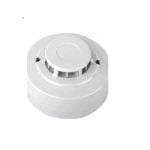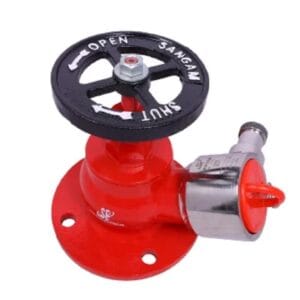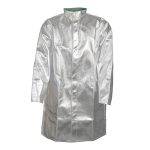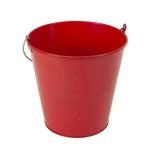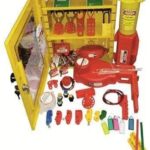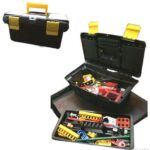Your list is empty, add products to the list to send a request
What is the Best Fire Extinguisher for Home Use?

09
Aug
When it comes to protecting your home and loved ones from the dangers of fire, having the right fire extinguisher is crucial. With so many options available in the market, it can be overwhelming to choose the best fire extinguisher for home use. In this comprehensive guide, we’ll explore the various types of fire extinguishers, their applications, and help you make an informed decision to keep your home safe.
Understanding Fire Classes
Before diving into the types of fire extinguishers, it’s essential to understand the different classes of fires:
- Class A: Fires involving ordinary combustibles like wood, paper, and cloth
- Class B: Fires involving flammable liquids and gases
- Class C: Fires involving electrical equipment
- Class D: Fires involving combustible metals
- Class K: Fires involving cooking oils and fats
Types of Fire Extinguishers
1. ABC Dry Chemical Fire Extinguishers
ABC stored pressure fire extinguishers are the most versatile and widely recommended for home use. They contain monoammonium phosphate as the extinguishing agent and are effective against Class A, B, and C fires. These extinguishers are available in various sizes, with the most common being the 4kg fire extinguisher and the 6kg fire extinguisher.
Pros:
- Versatile
- Easy to use
- Affordable
Cons:
- Can leave a residue
- May cause respiratory irritation
2. CO2 Fire Extinguishers
CO2 fire extinguishers are ideal for electrical fires and flammable liquid fires. They’re available in various sizes, including 1kg CO2 fire extinguisher, 3kg CO2 fire extinguisher, 4.5 kg CO2 fire extinguisher, and 9kg CO2 fire extinguisher.
Pros:
- Leaves no residue
- Effective on electrical fires
Cons:
- Not suitable for Class A fires
- Limited range
3. Foam Fire Extinguishers
Foam type fire extinguishers are effective against Class A and B fires. They work by creating a blanket over the fire, smothering it and preventing re-ignition.
Pros:
- Effective on liquid fires
- Prevents re-ignition
Cons:
- Not suitable for electrical fires
- Can be messy
4. Water Fire Extinguishers
Water type fire extinguishers are best for Class A fires. They’re simple to use and environmentally friendly.
Pros:
- Inexpensive
- Environmentally friendly
Cons:
- Not suitable for electrical or liquid fires
- Can cause water damage
5. Clean Agent Fire Extinguishers
Clean agent fire extinguishers use halogenated or clean agents that leave no residue. They’re ideal for areas with sensitive equipment.
Pros:
- Leaves no residue
- Safe for electronics
Cons:
- More expensive
- Limited effectiveness on Class A fires
6. Kitchen Fire Extinguishers
Kitchen fire extinguishers, also known as Class K extinguishers, are specifically designed for cooking oil and fat fires.
Pros:
- Specifically designed for kitchen fires
- Prevents re-ignition of oil fires
Cons:
- Limited to kitchen use
- More expensive than multi-purpose extinguishers
7. Fire Extinguisher Ball
The fire extinguisher ball or fire ball is a relatively new concept. It’s a throwable device that activates upon contact with fire, dispersing an extinguishing agent.
Pros:
- Easy to use
- Can be placed in fire-prone areas
Cons:
- Limited range
- May not be as effective as traditional extinguishers
Choosing the Best Fire Extinguisher for Home Use
When selecting a fire extinguisher for your home, consider the following factors:
- Size and Weight: A 4kg fire extinguisher is typically sufficient for most homes. Larger extinguishers like the 6kg fire extinguisher or 9kg fire extinguisher may be more challenging to handle.
- Type of Fire Risks: Assess the potential fire hazards in your home. For most households, an ABC dry chemical extinguisher is the best all-around choice.
- Ease of Use: Look for extinguishers with clear instructions and simple operating mechanisms.
- Placement: Consider having multiple extinguishers placed strategically throughout your home, especially in high-risk areas like the kitchen, garage, and near electrical panels.
- Maintenance: Regular maintenance is crucial. Check the pressure gauge monthly and have professional inspections annually.
Additional Fire Safety Equipment
While fire extinguishers are essential, a comprehensive home fire safety plan should include:
- Smoke Detectors: Install Agni smoke detectors or other reliable brands throughout your home.
- Heat Detectors: Use heat detectors in areas where smoke detectors may cause false alarms, such as kitchens.
- Emergency Exit Lights: Install emergency exit lights to guide you to safety during a fire.
- Fire Hose Reel: A fire hose reel can be an effective supplement to fire extinguishers, especially for larger homes.
- Sprinkler Systems: Consider installing sprinkler heads for automatic fire suppression.
- Gas Leak Detectors: Use LPG gas leak detectors or CNG gas leak detectors to prevent gas-related fires.
- Fire Safety Gear: Keep fire safety gloves and other protective equipment on hand.
Proper Use and Maintenance of Fire Extinguishers
To ensure your fire extinguisher is ready when you need it:
- Mounting: Use a fire extinguisher hanger hook to keep it easily accessible.
- Pressure Check: Regularly check the pressure gauge on your extinguisher.
- Professional Inspection: Have your extinguisher professionally inspected annually.
- Recharge or Replace: After use, even if only partially discharged, have your extinguisher recharged or replaced immediately.
- Training: Familiarize yourself and your family members with the PASS technique (Pull, Aim, Squeeze, Sweep) for using a fire extinguisher.
Innovative Fire Safety Solutions
As technology advances, new fire safety products are emerging:
- Automatic Fire Extinguishers: Clean agent automatic fire extinguishers can activate without human intervention.
- Smart Smoke Detectors: These can send alerts to your smartphone when they detect smoke or fire.
- Fire Suppression Systems: Integrated systems that combine detection and suppression for comprehensive protection.
Fire Safety in Different Areas of the Home
- Kitchen: The kitchen is one of the most common areas for fires to start. Keep a kitchen fire extinguisher or Class K extinguisher readily available. Consider installing a hood suppression system for additional protection.
- Garage: Store a larger ABC fire extinguisher in the garage, as this area often contains flammable liquids and electrical equipment.
- Bedrooms: Keep a smaller fire extinguisher in each bedroom for quick access during nighttime emergencies.
- Living Areas: Place fire extinguishers near exits in living areas for easy grab-and-go in case of evacuation.
- Outdoor Areas: Consider an outdoor fire extinguisher for barbecue areas or outdoor kitchens.
Fire Safety Education and Training
Knowing how to use a fire extinguisher is just as important as having one. Consider these steps:
- Attend local fire safety workshops or training sessions.
- Practice using a fire extinguisher (many fire departments offer this opportunity).
- Teach children about fire safety and what to do in case of a fire.
- Create and practice a home fire escape plan with your family.
Environmental Considerations
When choosing a fire extinguisher, consider its environmental impact:
- Water extinguishers are the most environmentally friendly but have limited applications.
- CO2 extinguishers don’t leave residue but contribute to greenhouse gases.
- Clean agent extinguishers are ozone-friendly alternatives to older halon extinguishers.
Industrial and Commercial Fire Extinguishers
While this guide focuses on home use, it’s worth noting that industrial and commercial settings often require specialized fire extinguishers:
- Cartridge type fire extinguishers for heavy-duty industrial use
- Wheeled fire extinguishers for larger commercial spaces
- Foam type fire extinguisher details for specific industrial applications
Fire Safety Regulations
Be aware of local fire safety regulations, which may dictate:
- The number and type of fire extinguishers required in your home
- Placement of smoke detectors and other safety equipment
- Regular inspections and maintenance requirements
Innovative Fire Suppression Technologies
As technology advances, new fire suppression methods are being developed:
- Freeze fire extinguisher technology that rapidly cools fires
- Throw fire extinguisher devices for easy deployment
- Water mist systems that use less water and cause less damage
FAQs about Fire Extinguishers
1. How often should I replace my fire extinguisher?
A: Firesupplies recommends replacing your fire extinguisher every 5-15 years, depending on the type. Always check the manufacturer’s guidelines.
2. Can I use a fire extinguisher more than once?
A:Firesupplies advises that most fire extinguishers are designed for one-time use. After use, even if only partially discharged, they should be recharged or replaced.
3. What’s the difference between a DCP extinguisher and an ABC extinguisher?
A:Firesupplies explains that DCP (Dry Chemical Powder) extinguishers are similar to ABC extinguishers but may also be effective on some Class D fires.
4. Are fire extinguisher cylinders refillable?
A:According to Firesupplies, most fire extinguisher cylinders are refillable, but this should only be done by certified professionals.
5. How do I dispose of an old fire extinguisher?
A: Firesupplies recommends contacting your local fire department or hazardous waste disposal facility for proper disposal instructions.
Conclusion: Protecting Your Home with Firesupplies
Choosing the right fire extinguisher is a crucial step in protecting your home and loved ones from the dangers of fire. While an ABC dry chemical extinguisher is often the best all-around choice for home use, your specific needs may vary depending on your living situation and potential fire risks.
At Firesupplies, we’re committed to helping you find the perfect fire safety solutions for your home. Our extensive range of fire extinguishers, from ABC stored pressure fire extinguishers to specialized kitchen fire extinguishers, ensures that you’ll find the right product for your needs. We also offer a wide selection of additional fire safety equipment, including smoke detectors, emergency exit lights, and fire hose reels.
Don’t wait until it’s too late to protect your home from fire. Visit Firesupplies.in today to explore our comprehensive range of fire safety products and expert advice. Remember, when it comes to fire safety, being prepared can make all the difference. Choose Firesupplies for peace of mind and unparalleled protection for your home and family.






